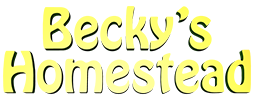It can be frustrating when you don’t know where to start and you and your animal are not on the same page. Whether you have a horse, pony, mule or donkey they all need to know these three things. Some are taught these when they are babies. Others are bred and sold not knowing much at all and sadly many, many animals live for decades never being taught even the most basic manners.
Here I show you how to teach the three most basic things your horse, pony, mule or donkey needs to know so you can develop a good partnership. It’s so satisfying when you get that bond.
I really want to help you by giving you a simple plan that you can look forward to doing with your fur baby.
Nothing makes us happier than walking out to the pasture and having our equine walk up to us and want to be with us and let us catch him. We work so hard to support them and look forward to going out and playing with them every day. We want nothing more than for them to want to see us too.
We want to develop a strong bond with them and most of us know that it takes time for the horse or mule to develop it. We can have love at first site but equines aren’t made like that. It takes a while for them to develop that connection, so at first be happy with him just walking up and standing next you and give him a scratch THEN a treat.
Don’t be a goody dispenser because that weakens your reward tool. Goodies should be a reward not just to feed out at all times. Food rewards work really well IF you do it right. After a few times of him walking up and standing next to you, try and put the halter on. Don’t give the goodie reward until after you get the halter on and square him up.
Once you can do that with ease your ready for step two. I have to say this at this time, Never ever leave the halter on. Some people leave the halter on because they think it is easier to catch them. That is just a short cut and short cuts are lame. We train them to come to us when we enter their pasture or call them. Mine come up every time they see me outside.
Step two for them is learning to lead with manners. Again this is something very important and your horse will need to do this his whole life. Start by standing by his head, look forward and walk four steps, stop, turn and face him and square up all four feet. Two front feet even and two back feet even.
Take it slow. Once you get it, give him a reward treat. Repeat this in a long straight like, walk four steps, stop, turn and face him, square up, reward goodie. It’s good to pause for a few minutes after you give the reward goodie. I just stand until they finish chewing. This lesson doesn’t have to be long, 20 or 30 minutes.
I have know many grown horses that couldn’t stand tied. What an inconvenience to have such a large animal that is not trained. I’ve heard every excuse in the book but the one most used is “he was abused before I got him”. No, he was not trained before you got him. Very, very few horses are abused, but tons and tons are simply not trained. People LOVE to breed those cute little babies but not too many want to take the time to train them. It takes a long time to train a horse well.
There is a lot for that animal to learn to be safe and fun. Horses, ponies, mules and donkeys are slow learners. It takes years to finish a horse and people who breed want to get rid of them fast to make room for the next batch of babies. Not to mention how much it cost to feed one, trim it’s hooves, and deworm it.
Now we can understand why there are so, so many untrained horses out there. They are not abused, they are confused. We are expecting a grown animal to know certain things when they have never been taught and the poor horse is like “why are you so frustrated with me yikes”. It just wants to get away from all your pressure and disappointment. Poor boy.
The good news is they respond so well to a bit of understanding. All we have to do is teach them in simple little baby steps that they can understand. We start them in nursery school because that is their emotional level. Equines are very emotional animals, thats why we love them so much and connect with them so much. We don’t spoil them, but we teach them like little kids, slow, patient and kind.
The 3rd lesson is for them to stand nicely when we tie them up. It’s important for them to know this and do it well.
Use a rope halter and make sure you have a strong big fat post to tie them to. Clear everything away from your training area so no accidents happen.
Use a 12 foot lead rope and wrap the lead rope around and around the post at the same height as the horses wither. I don’t tie the rope, I just wrap it at first. It is just safer. Once they stand well I tie or clip them to a hitching rail.
